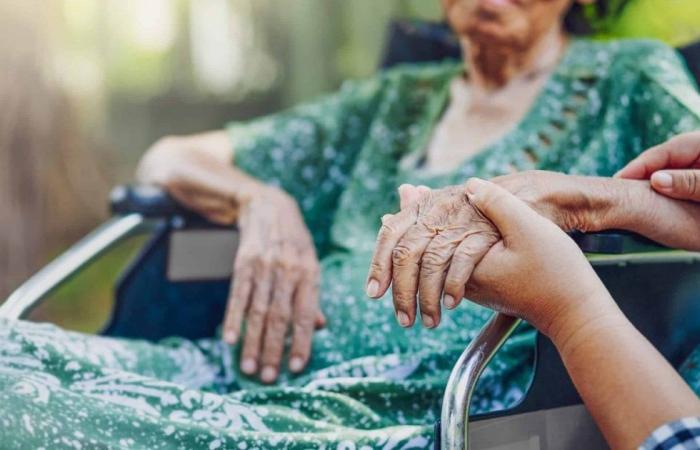Le Matin: What are the main health risks associated with high summer heat?
Dre Khadija Moussayer :
For our organs to function properly, it is essential that the core temperature of our body is stable. In case of extreme heat, our body tries to eliminate it by sweating and speeding up breathing. The evaporation of sweat consumes calories and cools the skin. In addition, the blood vessels located on the surface of the skin dilate and blood moves from the central organs to the peripheral organs so that it can cool there. If this defense mechanism is overwhelmed, exposure to extreme heat can have serious consequences: dehydration, exhaustion, heatstroke (sunstroke), and other serious illnesses or even death.
What are the common symptoms of heat stroke and severe dehydration, and how can it be distinguished from simple heat exhaustion?
Dehydration occurs when water loss from the body is greater than intake through drinks and food. It manifests itself by a feeling of thirst, dry mouth, muscle cramps, fatigue and headaches. At a more advanced stage, it results in fever, behavioral problems or even loss of consciousness.
Sunstroke or heat stroke occurs in the presence of extremely high temperatures when the body loses its ability to control and is no longer able to sweat to lower the body temperature, which can rise up to 41°C, within a few seconds. minutes. It manifests itself by violent headaches, skin that becomes red and hot, behavioral problems which can range from drowsiness to aggressiveness, and a fever greater than or equal to 40°C. Irreversible brain damage can lead to death.
As for heat exhaustion, it is caused by a loss of water or salt, which leads to a decrease in blood volume. It is distinguished from sunstroke by the persistence of sweating and the fever which remains below 40°C. It results in severe redness of the head, accompanied by neck pain. Headaches or dizziness, sometimes vision problems or difficulty sleeping.
Which population groups are most vulnerable to the effects of heat waves and why?
Populations over 65 are particularly vulnerable to these effects. With advancing age, the ability to adapt to high temperatures diminishes due to a reduction in the feeling of thirst, less efficient sweating, as well as a poor perception of high temperature. temperature. In addition, certain treatments increase water loss (diuretics) can worsen dehydration during a heat wave. Furthermore, a loss of autonomy or cognitive disorders worsen the situation. Indeed, cognitive disorders increase risks by limiting the ability to adapt behavior to the situation. Athletes and people working outdoors in summer are also at greater risk from the effects of the heat wave.
Children are very vulnerable, especially infants who can become dehydrated within a few hours, a child’s body temperature rises 3 to 5 times faster than that of an adult. Therefore, you should never leave a baby in a car in summer; they can suffer from heatstroke after just a few minutes. The temperature inside a car can reach 50°C in an hour even if it is 26°C outside and contrary to popular belief, leaving a window ajar does not slow down the warming inside. of the car.
What advice would you give to older people to protect themselves from extreme heat?
It is necessary to drink fluids throughout the day and refresh your body with lukewarm (but not cold) showers. You should not go out during the hottest hours of the day and spend time in cool, ventilated places, maintain a balanced diet, favoring cold dishes, raw fruits and vegetables and limit any physical effort (sporting activity, walking , gardening, DIY, etc.), during periods of extreme heat.
Opt for loose clothing, the tighter and closer a garment is to the body, the more it prevents the skin from breathing and the hotter it makes you feel. In case of extreme heat, we favor light and flowing cuts to allow air to circulate.
What precautions should be taken for people who must work outdoors on very hot days?
You should try to work in the shade as much as possible, especially during the hottest hours of the day, and take breaks more often and of longer duration, preferably in a cool place. It’s important to drink enough and use an insulated container with a cold pack to keep drinks cold all day.
Clothing should be light cotton and light colors. Indeed, dark colors absorb heat from the sun, while light colors tend to reflect it. White fabric only absorbs 120 watts per square meter, three times less than black fabric.
The head must not be exposed to the harmful rays of the sun; protective caps which protect the head both from the sun and from possible falling materials are available.
How can you prevent dehydration in summer? And what are the dietary recommendations to stay hydrated and healthy during heat waves?
To avoid dehydration, you must adopt good actions without waiting for the first signs of bodily suffering: you must drink regularly and without waiting to feel thirsty. To diversify your intake, you can also take fruit juices without added sugar; alcohol is not recommended, as it reduces your ability to fight heat and promotes dehydration. You should also avoid drinks with a high caffeine content (coffee, tea, cola) or very sugary drinks (sodas), as they increase urine secretion.
If you have difficulty swallowing liquids, you can hydrate by eating foods rich in water, such as fruits and raw vegetables or even cold soups or compotes.
It is important to avoid drinking or eating ice cold: this quickly reduces the feeling of thirst, with the risk of not hydrating enough to cover needs.
What are the best practices for keeping a cool home without overusing air conditioning?
You can cool your interior, even if you don’t have an air conditioning system, with the help of a few provisions. Close shutters and blinds during the day and open them at night to cool the rooms. Avoid overheating electrical appliances such as computers, televisions and ovens.






